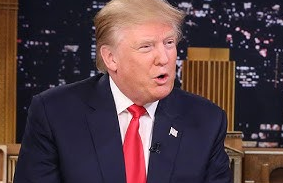The political resurgence of President-elect Donald Trump has caused significant upheaval within the Democratic Party, simultaneously impacting the entertainment industry, particularly late-night television. Once a powerful influence in shaping public opinion and cultural dialogue, shows hosted by popular figures such as Stephen Colbert, Jimmy Kimmel, and Jimmy Fallon now grapple with dwindling ratings and a loss of significance.
Recent research by the Media Research Center highlights this shift. During the peak of the 2024 election cycle, late-night comedy shows directed an overwhelming 98 percent of their jabs at Trump, delivering around 1,463 jokes between September 3 and October 25. By contrast, vice presidential candidate JD Vance was only the butt of 78 percent of running-mate-related humor, suggesting a one-sided approach.
This singular focus on Trump appears to have backfired, as audiences are increasingly disengaged, leading to what some critics describe as “Trump Derangement Syndrome.” Despite the heavy saturation of anti-Trump content, viewership has plummeted for programs that once thrived in the late-night slot, indicating a disconnect with everyday viewers.
As the Democratic Party reels from post-election disarray and lacks a strong leadership figure, the challenges facing Hollywood reflect the difficulties encountered by the political establishment. Ironically, promises from celebrities like Alec Baldwin and Cher to relocate to Canada if Trump emerged victorious remain unfulfilled, further deepening the political satire’s complexity.
The diminishing appeal of late-night shows signifies a larger cultural transformation. With Trump making a notable return to the political arena, media and entertainment will likely need to reassess their narratives to remain relevant in a rapidly changing landscape. Adjusting their comedic strategies may be crucial for reclaiming their status as leaders in late-night entertainment.




















